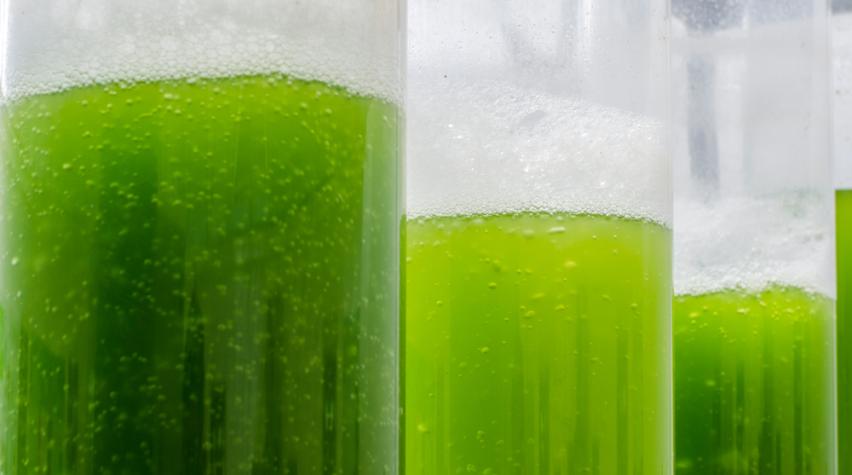
Researchers at the University of California San Diego and Sapphire Energy have completed the first outdoor field trial sanctioned by the U.S. Environmental Protection Agency for genetically engineered algae.
The genetically engineered algae was successfully cultivated outdoors while maintaining engineered traits. Of particular note, it was found that the algae produced no adverse effects on native algae populations.
The scientists cultured strains of the algae species Acutodesmus dimorphus—genetically engineered with genes for fatty acid biosynthesis and green fluorescent protein expression—in parallel with non-engineered algal species during the 50-day trial. Testing both algae strains in water samples taken from five regional lakes showed strikingly similar levels of growth in the tests, and that the genetic modification did not change the impact of the cultivated strains on native algae communities.
Future testing will include additional gene types in experiments that run several months, allowing the researchers to further evaluate influences from weather, seasonal shifts and other environmental factors.
For more information, see the scientists' news release and their published findings in Algal Research.


